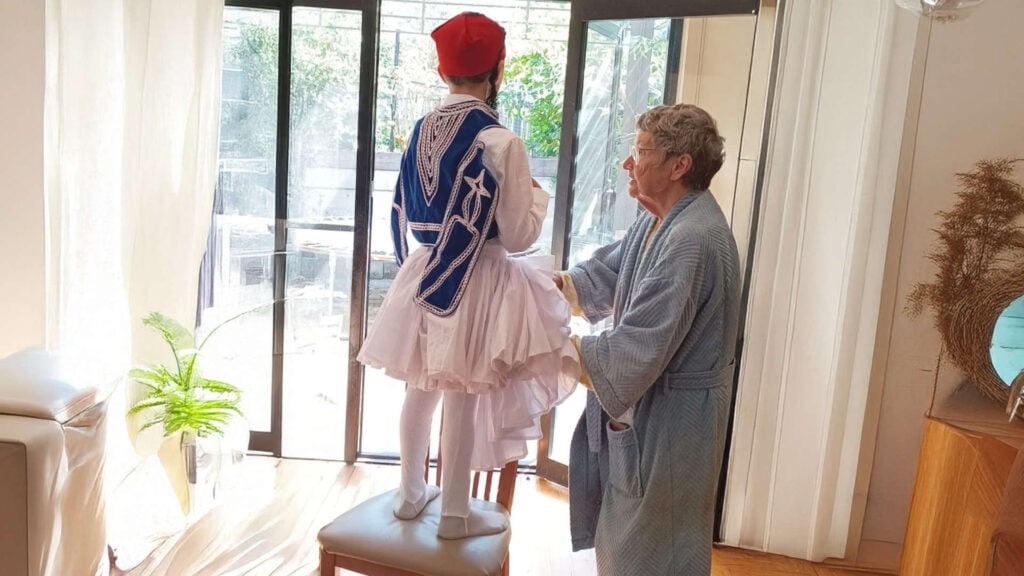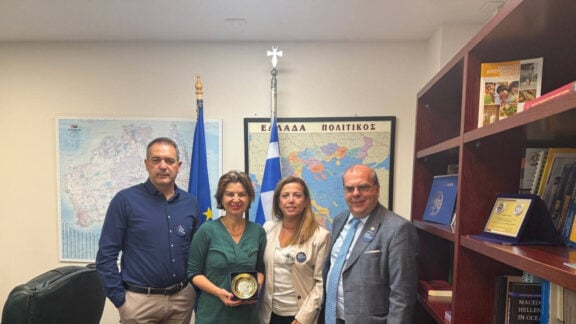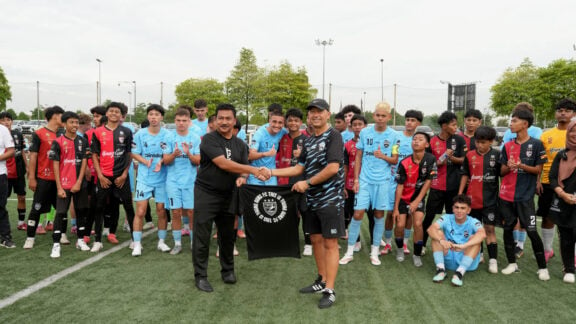Today Australia recognises the vast number of languages and cultures of its people and celebrates multiculturalism. But this was not the case when Cavell Zangalis taught in the inner city suburbs in the 1970s, where she witnessed the large influx of Greek migrants, Turks and Italians.
It was a time when thousands of young Greeks migrated to Australia after the Second World War and the Greek Civil War, dreaming of a better life. For their children however, born into households where only Greek was spoken, school could feel quite hostile, another kind of battlefield. Thrust into classrooms with minimal English, these children were expected to adapt overnight. The system offered little support, and the pressure to assimilate was immense.
Cavell Zangalis, a teacher (and later a principal in Melbourne’s inner city schools) did everything she could to change this, becoming a not so quiet force in Australia’s shift to Multiculturism, long before it became widely embraced.
“Now there’s an acceptance of the history, and it’s a given that the population speaks many other languages. You do not need to assimilate to feel included anymore. Greeks always took pride in their culture and history, but now they feel free celebrate their identity, to demonstrate it. There is also reconnection. Times are more affluent and Greek Australians are travelling back and forth. They’re up to date with what’s going on in both cultures and countries.
“Today, there is a greater appreciation amongst newer communities that it’s okay to maintain your identity and belong to two cultures. But it was different in the early days, it wasn’t demonstrated as much.”
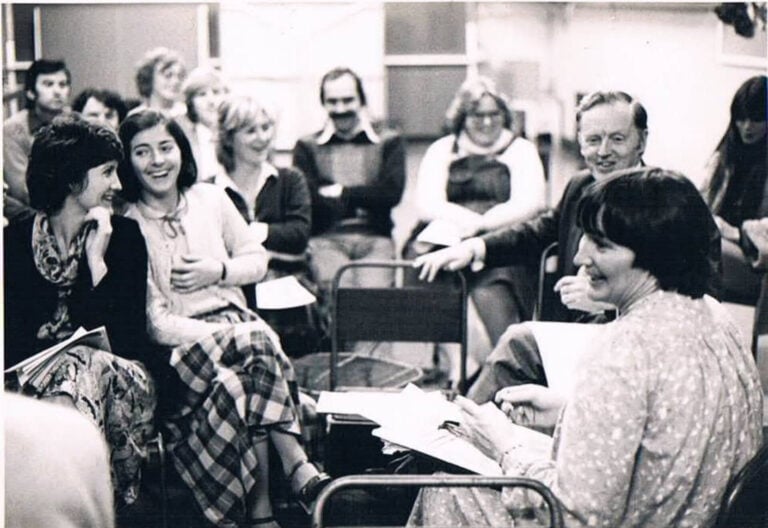
She saw this firsthand, through the many families she supported over the years, and even through her own family. Married to Greek born activist George Zangalis since 1968, Cavell immersed herself in the culture: naming their children after their Greek grandparents, travelling often to her husband’s ancestral village Drymathes in Epiros, even rebuilding a modest family home to replace his childhood home which had been destroyed during the Civil War. She takes pride in her children’s, and now grandchildren’s, connection to their Greek heritage and traditions.
“These traditions teach the kids that they belong,” she says. “That they can belong in two places and honour their heritage.”
In the 1970s, working in schools across Collingwood and Richmond, she witnessed the challenges migrant children faced.
“There were no real programs to assist non English speakers,” she recalls. “So, a group of us formed the ‘Inner Suburban Group’ through the teachers’ union to push for change.” Their push helped bring about the introduction of ‘English as a Second Language’ and other multicultural support initiatives across inner Melbourne schools.
But language was just one aspect. Cavell also saw the need for cultural inclusion, for spaces where migrant families could connect, and children could feel seen.
She helped establish an annual Greek dance at Collingwood Town Hall so parents could gather, feel welcome, and share their traditions with their children. Along with Priscilla Clarke they published books for children celebrating the Easter and Christmas traditions of cultures across the world. Interpreters were brought into parent teacher meetings, and in the 1980s, she helped start a Greek bilingual program in Collingwood and Richmond. “It allowed the children to learn using their mother tongue, while also acquiring English,” she explains.
“As the years have gone by, language isn’t a barrier anymore. Now it is about keeping the language alive in future generations.”
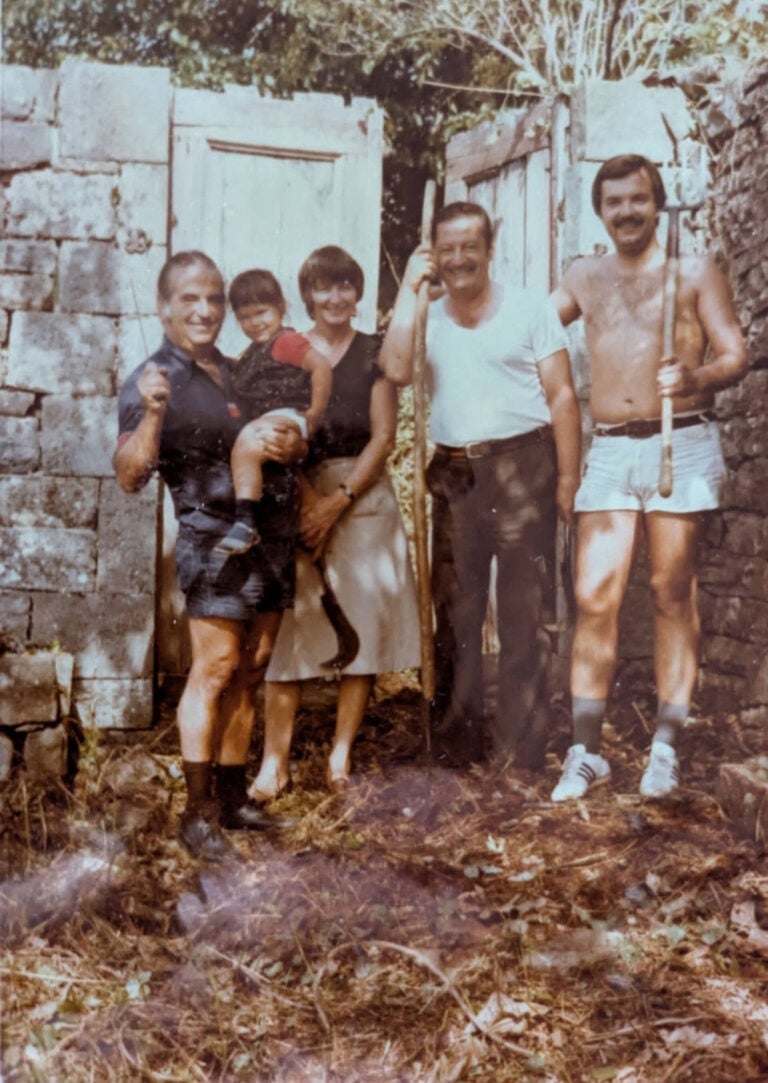
A shared commitment to justice
Cavell and George Zangalis came from vastly different worlds — she from Numurkah, a small town near Shepparton, and he from northern Greece battered by the civil war. They shared however the same values and a commitment to social justice.
“They were both advocates in their own worlds,” their daughter, Vasso Zangalis, recalls. “We grew up watching them go off to meetings all the time, preparing for the next campaign or rally in the city.” It was inspiring to see her parents fight for what’s right. To witness how everyday people can create change.
George Zangalis, a communist, was forced to escape Greece’s civil war at just 18 his family torn apart. Maintaining his identity, his connection to his roots, was stronger because of that trauma. Cavell supported this. Their marriage, at a time when mixed unions were uncommon, was enriching. “It was great to appreciate the depth of Greek culture and to see it actually happening around me.”
A school for the people
Cavell’s principles were tested again in the 1990s, when the Kennett Government closed Richmond Secondary College as part of sweeping education cuts, to possibly sell the property to private investors.
Many Greeks living in the inner suburbs will remember how the community fought back, occupying the school for over a year. While Cavell, facing closure of Richmond Girls High School as well, began working on a vision for a new school for girls in the area. She could not allow another girls school to close down. She and her staff worked hard to develop a vision for the new school they called Melbourne Girls College.
Amid the resistance, the government was forced to negotiate. Cavell, was then appointed founding principal of the new Melbourne Girls’ College in 1994 — a position that came with immense pressure.
“I was not obedient. They wanted it to be a select entry school, and I refused,” she says. “They also wanted me to shut out the existing teachers and move on.”
Instead, Cavell insisted on interviewing every teacher from the three shuttered schools — Richmond Secondary, Richmond Girls, and Malvern Girls’ — to ensure fairness and continuity. “It wasn’t easy. There was a personal cost. But it was important.”
Today, her commitment is remembered through the Melbourne Girls College ‘Cavell Zangalis Leadership Scholarship’, and even a rowing boat — the largest in the school’s fleet — is named in her honour.
She smiles thinking about this, remembering her vision for the school and recognising that her fight was not in vain. Not only is Melbourne Girls College open to every girl in Melbourne, she now also sees her grandchildren excited to be part of it. “My son Paul’s daughter is in Year 11. Vasso’s daughter is planning to go. And that’s beautiful.”
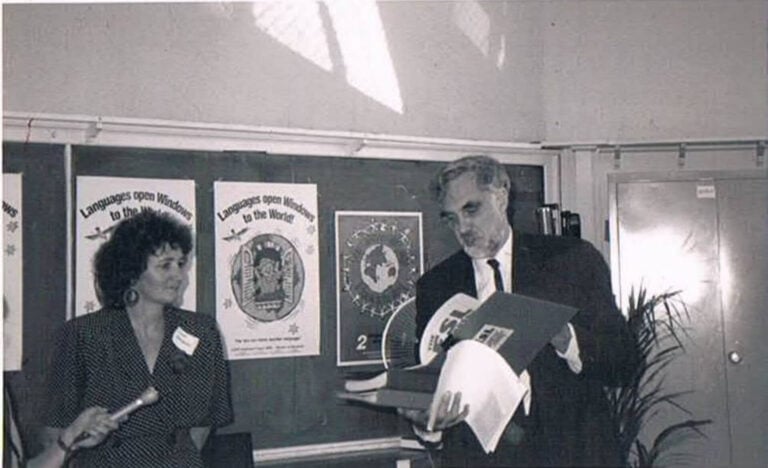
Always more to do
There’s always more to be done for the improvement of the lives of multicultural communities, and every day people.
“George died with a great many more things he wanted to do, to address new challenges for refugees, new immigrant communities and more”.
However, Cavell is encouraged by the Greek spirit that is still very much alive in Australia. “The Greek community, and also the various brotherhoods in the suburbs, continue to run Greek classes and celebrate name days and festivals.”
She loves seeing her grandkids bond with other Greek children from Greek school, celebrating important festivities together. Sometimes she even tries to help her grandkids with their Greek homework and costumes for special events.
“I’ve had a very good life and a very interesting life. Being part of another cultural family and sharing a lot of what George did. Sometimes he would come home from a meeting at 10 o’clock at night, and I’d get out of bed to address envelopes, prepare notices,” she laughs.
Throughout her life, Cavell Zangalis helped generations of Greek Australians, and countless others, feel seen, heard, and included. She wasn’t just a witness to Australia’s evolving multicultural story; she was one of its architects, driving change through years of thoughtful advocacy, quiet persistence, never compromising her belief in fairness and dignity.
Antipodes periodical
Cavell Zangalis’s story is one of the many features published in this year’s Antipodes periodical (Vol 71, 2025) which will be launched by The Greek Australian Cultural League on Sunday 19th October, 3pm, at The Panarcadian Association Building, 570 Victoria St., North Melbourne.
The launch and periodical is devoted to the influx of Hellenes who migrated to Australia during the 1950s and 1960s, making it their new home.
It will incorporate notable speakers, films representative of that time, a fashion parade, installations of the period, a photographic exhibition, and tasty delicacies of that era and guests are encouraged to wear or hold something of that era and to share its significance.
To advise your attendance contact: infogaclm@gmail.com or Cathy Alexopoulos 0428968715
All welcome, free entry.
